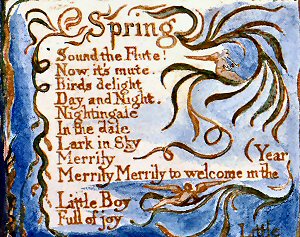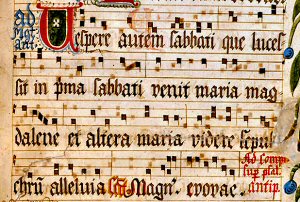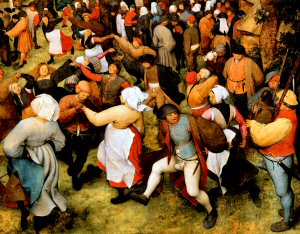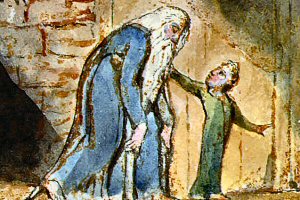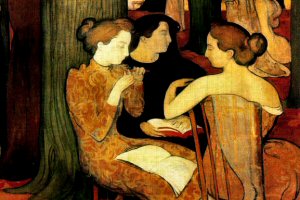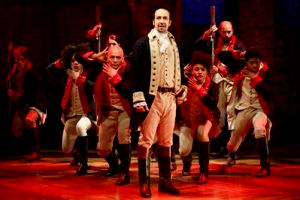5. Conversations Among the Arts.
Simple text-setting is not the only way that music can relate to poetry. This class will examine some other
kinds of conversation between different arts. In the first part, "Close Encounters," we get instrumental music
invaded by poetry, inspired by poetry, or shaped to resemble poety. The second part, "Birdsong," links musical
works and poems connected by their description of the sound of birds, coincidentally combining media which
include spoken poems, an oratoria, two violin concerti, and a masterpiece of modern dance.
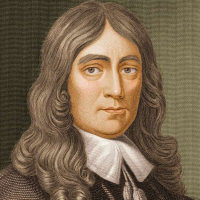 |
John Milton, 160874. English poet.
Milton's immense poem Paradise Lost (1667) is widely considered one of the masterpieces of English literature. He also wrote numerous shorter poetic works and a variety of political or philsophical pamphlets. At various times, he was also in government service. He was almost totally blind for his last two decades, and had to dictate his work.
|
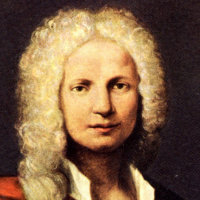 |
Antonio Vivaldi, 16781841. Italian composer.
Vivaldi, who was ordained as a priest, but lived a largely secular life, was an amazingly prolific composer of music in most genres, including opera, oratorio, and the instrumental concerti on which his later fame mainly rests.
|
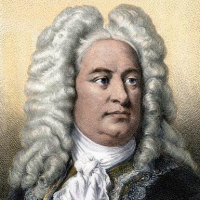 |
George Frideric Handel, 16851759. German-born English composer.
Gradually over the last half-century, Handel's 42 operas and numerous dramatic oratorios have been recognized as placing him on the level of Mozart and Verdi as an opera composer. The delay in appreciation is partly due to the fact that his preferred form, opera seria, is based almost entirely on recitative and solo arias. Born in Germany and trained in Italy, he dominated the English musical scene in the first half of the 18th century.
|
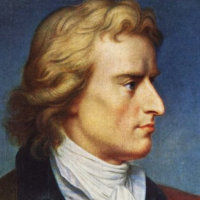 |
Friedrich Schiller, 17591805. German poet, playwright, humanist, and philosopher.
A close friend with Goethe, he was also a leading figure in "Weimar Classicism." His historical dramas such as Mary Stuart, Don Carlos, and William Tell became important sources for 19th-century operas.
|
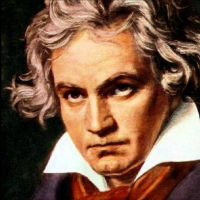 |
Ludwig van Beethoven, 17701827. German composer, working primarily in Vienna.
The dominant composer of his time, Beethoven wrote 9 symphonies, 16 string quartets, 32 piano sonatas, and one opera, Fidelio, which he labored on in several versions between 1805 and 1814. From about 1800 onwards, increasing deafness gradually put an end to his performing career, although he wrote some of his finest works when totally deaf. He is one of the first composers to exhibit a distinct late style.
|
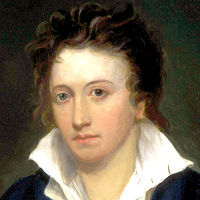 |
Percy Bysshe Shelley, 17921822. English poet.
With his friend Byron, Shelley was the outstanding English Romantic poet of the generation after Wordsworth and Coleridge. Politically engaged, and intellectually acute, he was an avowed atheist, a stance that got him expelled from Oxford, and kept him out of England for much of his short career. He drowned in a boating accident off Livorno at the age of 29. His second wife, Mary Godwin Shelley, was the author of Frankenstein.
|
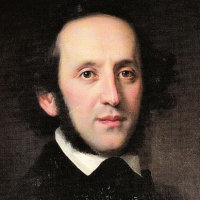 |
Felix Mendelssohn Bartholdy, 180947. German composer.
A major figure in the Romantic movement and a precocious talent, he wrote many of his best-known works (such as the Midsummer Night's Dream overture) while still in his teens. By virtue of his ten separate residencies in England or Scotland, and the works he premiered there, he almost qualifies as a virtual British composer.
|
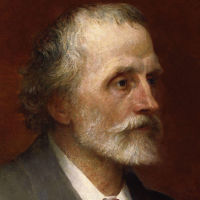 |
George Meredith, 18281909. English poet and novelist.
Meredith was a respected poet and relatively minor novelist of the Victorian era. His autobiographical sonnet squence Modern Love (1862), however, broke new ground in telling of the break-up of a marriage in psychologically realistic detail.
|
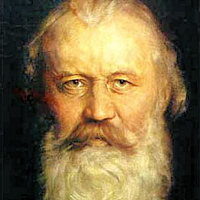 |
Johannes Brahms, 183397. German composer.
Although writing music whose harmonies and colors eiptomized the Romantic age, Brahms was a classicist at heart, developing the traditional forms of symphony, sonata, quartet and so on, and avoiding program music and opera. A master of virtually every genre, he is often listed together with Bach and Beethoven as the third of the "Great Bs."
|
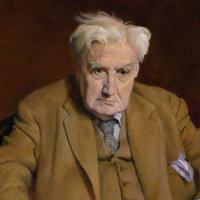 |
Ralph Vaughan Williams, 18721958. English composer.
Associated with the English folk song revival, he was more than anybody responsible for giving English music its national voice. He wrote nine symphonies and numerous vocal works, including the one-act opera Riders to the Sea. His first name is pronounced "Rafe."
|
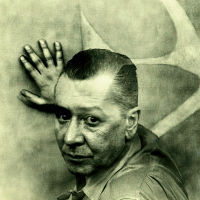 |
William Baziotes, 191263. American painter.
Baziotes was born in Pittsburgh to Greek parents, and studied art in New York. He became friends with many of the Abstract Expressionist painters, but his own work is equally influenced by the European Surrealism of Mirσ and Arp, featuring an interplay of biomorphic shapes on an indeterminate ground.
|
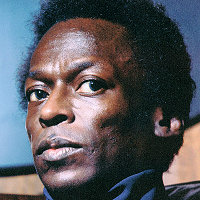 |
Miles Davis, 192691. American musician.
A trumpeter, bandleader, and composer, Davis had a career in jazz spanning five decades and numerous different styles. After playing with Charlie Parker 194448, he struck out on his own, leading groups that included such players as John Coltrane and Herbie Hancock. His Kind of Blue album of 1959 was performed almost entirely without written music, and became one of the best-selling jazz records of all time.
|
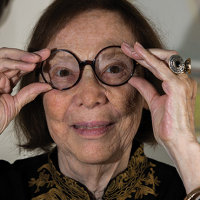 |
Grace Schulman, 1935 . American poet.
For 34 years, Schulman was poetry editor of The Nation. She is also a winner of the 2016 Frost Medal for Distinguished Lifetime Achievement in American Poetry, awarded by the Poetry Society of America, and a member of the American Academy of Arts and Letters.
|
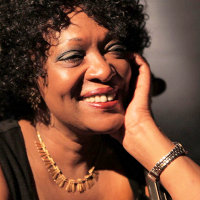 |
Rita Dove, 1952 . American poet.
Dove is a Pulitzer Prize winner (1987) and a former Poet Laureate (199395). She teaches at the University of Virginia. Her work is wide-ranging and addresses a variety of themes, including the life of the Black violin prodigy George Bridgetower, the original dedicatee of Beethoven's Kreutzer Sonata, whose tragedy she explored in her 2009 book Sonata Mulattica,
|
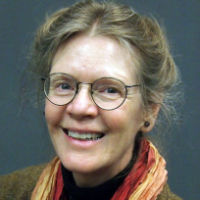 |
Jan Zwicky, 1955 . Canadian poet and philosopher.
Zwicky has taught philosophy at Princeton and several Canadian universities, exploring the resonance between philosophical and poetic thinking. She is a musician herself, and her poetry is often inspired by music. She was appointed to the Order of Canada in 2022.
|
 |
Mark Morris, 1956 . American dancer, choreographer, and conductor.
Both as leader of his own company since 1980 and in collaborations all over the world, Morris has created works noted for their expressivity, humor, and power to surprise. Morris is exceptional in his reponse to music of all periods, which had led him into opera directing and even to conducting.
|
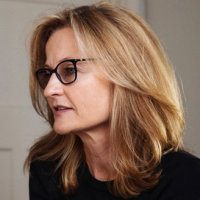 |
Julie Cooper, 1964 . English composer.
Cooper has written music for films, television, and stage plays, in addition to concert music. Her most recent album is Continuum (2022), a kind of musical diary of life under lockdown.
|
